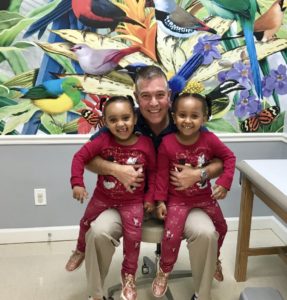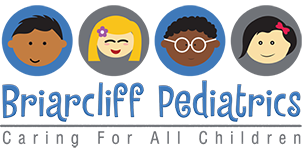Pollen Season: 5 Things Every Parent Needs to Know About Seasonal Allergies
- On Apr, 03, 2019
- Doctor Notes
- Latest News
The unmistakable yellow dust on the ground, the sold-out shelves of tissues, the sniffling you hear from everyone around you: it’s allergy season. Spring allergies are a problem many of us face every year, but it takes a whole different spin when you see your kids struggling with the same issue. As a parent, it’s important to get informed about allergies whether or not your kids currently have them. Here’s a look into what you need to know.

Recognizing the Differences Between Allergies and a Cold
It can be difficult to know whether your child has a cold or allergies. After all, both tend to cause symptoms like a runny nose, congestion, and a drainage-related sore throat. It’s important to know what you’re dealing with so you know what medications or treatments can relieve your child’s symptoms.
There are a few clues to help you know if you’re dealing with allergies or a cold. First, allergies are likely to cause your child to have symptoms around the same time every year. Of course, that’s not helpful if this is the first year your child has had allergies. Another clue is if your child’s nose, eyes, or the roof of their mouth is itchy. This often happens with allergies but not with colds. Third, find out if your child has a fever. If they do, it’s a sign of a cold while allergies don’t cause fevers. If your child seems to have more symptoms while they’re outside or in specific areas, it’s also a clue that they may have allergies. Of course, these are all just hints. It’s important to schedule an appointment with a pediatrician to find out for sure.
Seasonal Allergies are Rare in Toddlers
As many people have discovered after moving to Atlanta from other parts of the country, it usually takes a few years of exposure to an allergen before you develop an allergy to it. For that reason, it’s unlikely that a child under two years old will have allergies. This is especially true for outdoor seasonal allergies because your child isn’t exposed to any particular type of pollen all year round. Most children will allergies don’t begin having symptoms until age 4 or older.
Limiting Exposure Goes a Long Way
While there are medications available to reduce allergy symptoms, they don’t have to be your first choice. If there are certain types of pollen that trigger your child’s symptoms, try to keep those plants out of your lawn. To keep your child’s symptoms to a minimum while they’re inside, try using specialized air conditioner filters that block allergens and air pollution. An air purifier can help as well, and so can a dehumidifier because many types of allergens thrive in more humid air.
Preemptive Treatments Work Better
As you may know, allergy symptoms happen when your immune system interprets a harmless pollen or other type of allergen as a harmful intruder. The symptoms come from your immune system battling the allergen. The problem is that there’s an entire interaction that happens with your immune system before you start feeling symptoms. It’s far easier to stop that interaction from happening in the first place than to stop it after the ball is already rolling. For this reason, it’s best to start giving your child their allergy medicine a few weeks before their allergy season begins. Dr. Raymond Deeb or Dr. Ashley Brown can instruct you based on your child’s specific allergens.
Ask Before You Experiment
Some parents who suspect that their kids have allergies decide to take a “trial and error” approach. They give their kids allergy medicine and if their child’s symptoms improve, it confirms that they have allergies. If not, it means their child has a cold instead. While this is a valid approach, it’s important to ask your pediatrician first. We can offer you advice about whether this is a good option for your child, which types of medications to try, what dosage you should use, and more.
Allergies are unique as far as chronic conditions go. They can change over time or appear and disappear suddenly. They’re also frequently misunderstood. The information here is a start, but the most important step you need to take if you think your child has allergies is to talk to Dr. Deeb or Dr. Brown. They can get to the bottom of your child’s symptoms and help them enjoy the springtime in comfort. Schedule your appointment today to work toward relief for your child. For more helpful tips on your child’s health, follow Briarcliff Pediatrics on Facebook and Twitter.




